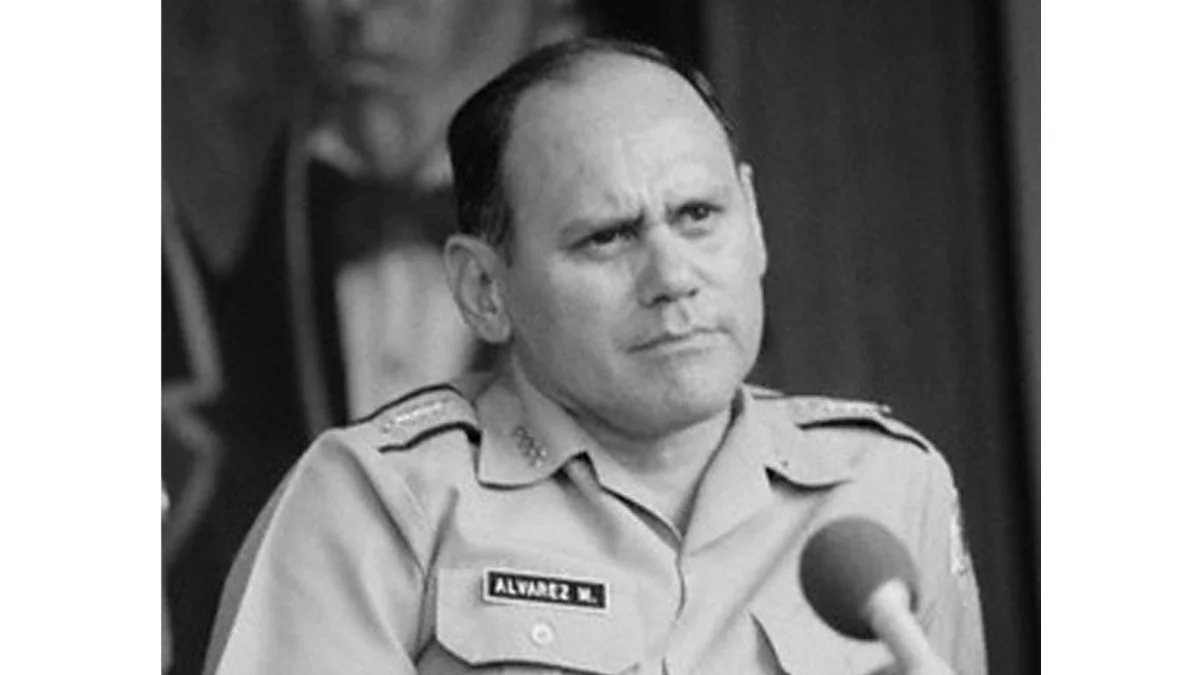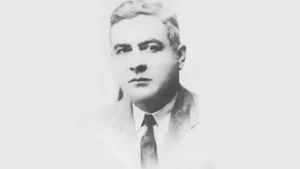Biography of Gustavo Adolfo Alvarez Martínez

He was born in 1938 in the city of Tegucigalpa, the capital of the Republic of Honduras, and passed away on January 15, 1989, in the same city. He was a Honduran military officer and politician, serving as the Joint Chief of Staff of the Honduran Armed Forces from 1981 to 1984.
As a General, he pursued part of his military career at the Military College of Argentina between 1958 and 1962. He continued his training in his own country, Guatemala, the United States, and Peru, where he graduated from the Command and General Staff Course at the War College in 1972.
He quickly rose through the ranks of the Honduran Armed Forces, reaching the rank of Colonel and being entrusted with the command of the Fourth Infantry Battalion based in La Ceiba. In April 1978, while serving as the commander of that military unit, he was accused of being involved in a bribery case involving the multinational banana company Standard Fruit Co. He also issued orders for the capture and imprisonment of the Board of Directors of the Isletas Associative Company in 1977. He served nearly two years in prison in Trujillo before the members of the board were released due to the lack of legal grounds to continue their detention. He was later appointed Chief of the Public Security Force.
In January 1972, he assumed the position of Chief of the Armed Forces shortly after the Liberal candidate Roberto Suazo Córdova won the elections. He formed an alliance with Suazo since he did not meet the requirements outlined in the Constitutional Law of the Armed Forces. The law was modified by the National Congress under the instructions of President Suazo, who had a majority of deputies at the time. This action caused discontent among Alvarez’s fellow military officers, several of whom aspired to the same position and had more years of service. A few days later, he was promoted to the rank of General.
According to political observers, his appointment marked the rise to power of the pro-US sector in key military positions and the dominance of academically trained military commanders over the semi-professional tradition of the Honduran Army.
During his tenure, Salvadoran troops were allowed to train at the Regional Military Training Center (CREM) located in Puerto Castilla, which became a new source of discord within the Armed Forces.
Álvarez systematized the implementation of the National Security Doctrine in Honduras, which he had assimilated during his time in South America, applying a deliberate policy of repression, torture, and assassinations. On March 31, 1984, a movement led by the then-Commander of the Honduran Air Force, Walter López Reyes, overthrew Álvarez in what became known as a «barracks coup.» Álvarez was expelled to Costa Rica and discharged. He later moved to Miami, where he underwent a religious conversion and joined a Protestant sect.
He returned to Honduras in 1988 and was allegedly assassinated by the Cinchonero Popular Liberation Movement on January 25, 1989, according to the official version.
Publication Chronologies No. 2 from the Documentation Center of Honduras expressed the opinion that «Gustavo Álvarez Martínez has been one of the most influential figures in Honduran politics in recent years… «while in its Information Bulletin No. 36, it maintains that he managed to accumulate «the highest degree of personal and institutional power in the history of the Honduran Armed Forces… he quickly became the only Chief of the Armed Forces who, unlike his predecessors, was able to centralize an incredible volume of power and an impressive degree of political control within the military institution… In recent years, he became the most important ally of the Reagan administration in the Central American region… a professional military officer but an inexperienced politician… he failed to understand that his efforts to modernize and professionalize the army would inevitably contradict his clear tendency towards the personal centralization of political command within the institution. This tendency closed the possibilities for the internal democratization of the army and denied the prospect of what was a logical outcome of military modernization and professionalization: the democratic participation of officers with command responsibilities in the different units of the Armed Forces.» According to Aníbal Delgado Fiallos, «he did not enjoy the acceptance of the popular sectors, in fact, he was feared. Trained in military academies in South America, he had a fanatical attitude towards what he considered subversion, seeing communists here and there, and was in favor of a military solution to the problem with Nicaragua… his conceptions of democracy and communist expansion were determined by his conceptions of national security instilled in him by his mentors at the El Palomar military college in the Republic of Argentina.



